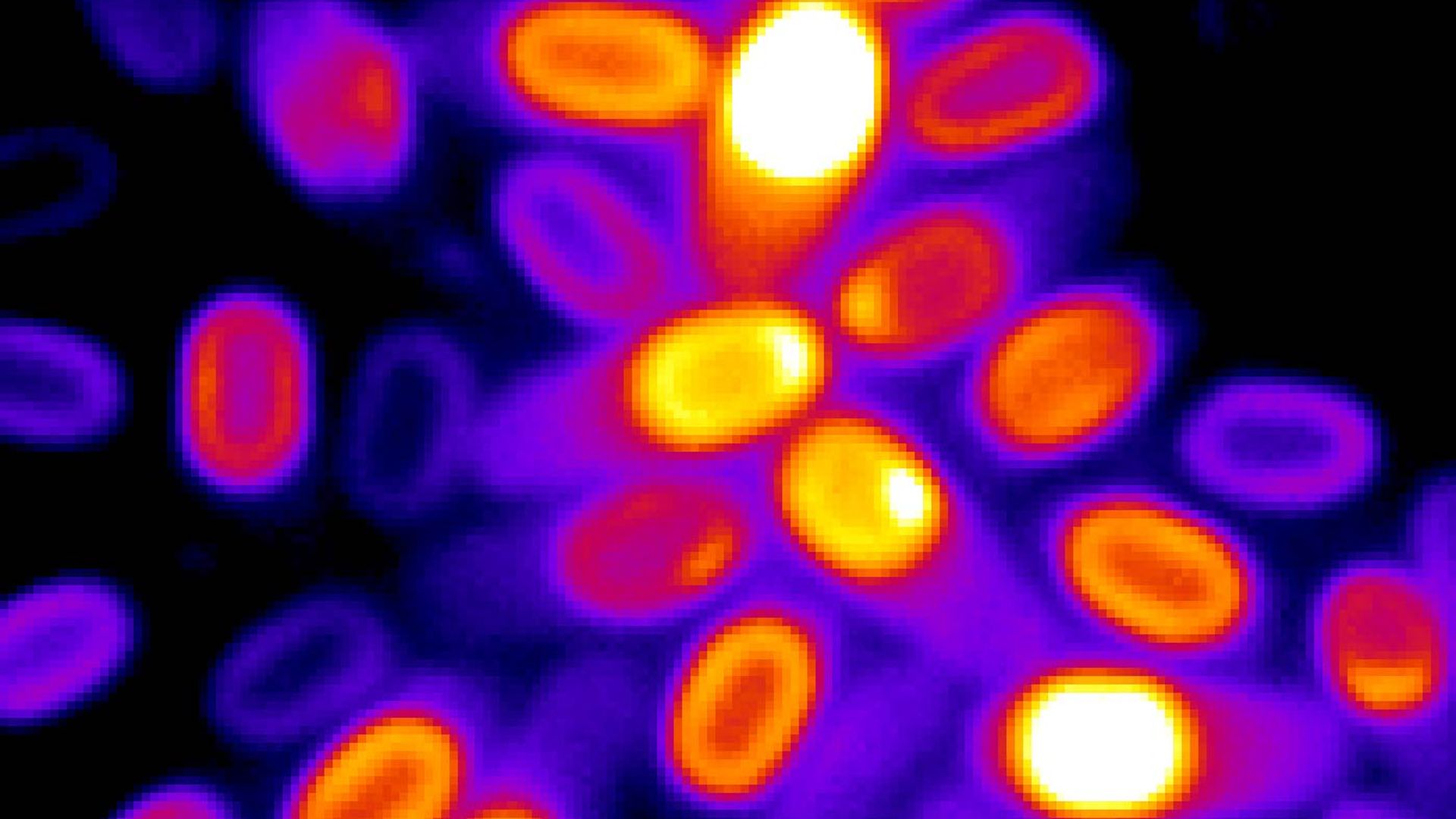Oct 8, 2022 - Science
Dormant bacteria count to wake up at the right time
Add Axios as your preferred source to
see more of our stories on Google.

Microscopy image of several spores with their electrochemical potential color coded according to value. Image: Suel Lab – Kaito Kikuchi and Leticia Galera
